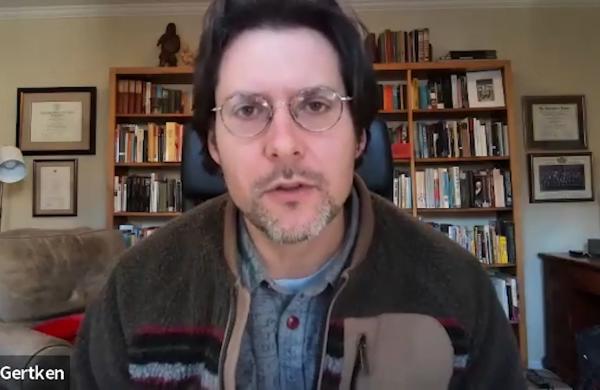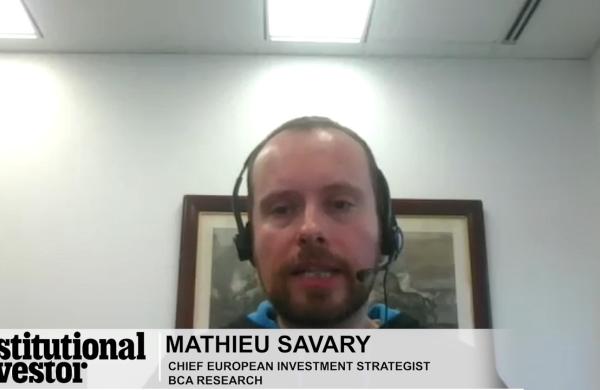A venerable financial industry utility faces threats from new technologies - and from its own creaky approach to governance.
By Andrew Capon and Jacqueline S. Gold
September 2001
Institutional Investor Magazine
The race doesn't always go to the swift. Nobody knows this better than the Society for Worldwide Interbank Financial Telecommunication.
Formed in 1973 by the world's biggest banks, Swift pursued a clear and, for that time, bold objective: to create a secure electronic network for the payments, letters of credit and other messages that the banks had been exchanging inefficiently and haphazardly by mail and telex. It took four years to get the system up and running, but long before anybody was talking about an information superhighway, Swift had one. Today the network is a fixture in the banking and securities infrastructure, handling more than 1 billion electronic messages a year for 7,000 institutions in 192 countries. It plays a role in the transmission, tracking and settling of some $5 trillion in transactions every day.
Swift got through much of its first quarter century by being anything but. Chartered as a cooperative, owned by hundreds of banks and facing no direct competitors, Swift set its own pace without the proddings and profit pressures that drive other technology enterprises.
Despite its accomplishments as a shared utility, Swift lately is under a great deal of pressure. The Internet has changed the economics of its core networking service and raised the unfamiliar specter of competition. Swift's membership, broadened over the past year and a half to include securities and asset management firms, runs ever greater risks of political fractiousness that could threaten its hallmark spirit of cooperation. And at a time when the world's financial institutions are tightening expense controls, Swift must justify its existence by working harder for more masters, without demanding too much in return.
All the while, Swift's management, led by a hard-charging American with unabashedly entrepreneurial tendencies, is locking horns with a board of banker-directors who have never wanted their joint venture to stray too far into commercial territory. Out of these tensions have emerged wide-ranging internal debates about strategy, structure and governance. Among the issues: Does Swift have sufficient resources and flexibility - and speed - to adapt to new technologies and competitive threats? Should Swift break its nonprofit shackles in favor of some form of privatization, perhaps even a public stock offering? Will there even be a need for Swift in five to ten years?
If it were quicker and more decisive, Swift might have put these matters to rest by now. Instead, they fester. Leonard Schrank, the blunt-spoken Massachusetts Institute of Technology graduate who joined Swift as CEO in 1992, runs up against the constraints of the cooperative every day. Yet he remains supremely confident that Swift will prove its worth.
It's a fight, says Schrank, "to stay relevant." That means he and his staff of 1,700 must continue to please their many bosses - particularly, the 3,000-plus institutions that hold shares in the cooperative. In the past that was relatively easy: As message volumes went up and unit costs came down, Swift would lower its fees and pay rebates to members.
To maintain that consistency, Schrank has the company pursuing an aggressive 50 percent price-reduction target over the next four years. But at the same time, Swift must spend money on new systems and services based on Internet technologies, which didn't exist for most of the organization's life.
Wary of being blindsided by nimbler, Internet-savvy competitors, Schrank insists that Swift finally take its name seriously. "No one ever said Swift couldn't be faster," snaps the 54-year-old CEO, who ran an international computer services business for Chase Manhattan Corp. before he joined Swift. "Can Swift do better? Yes. Does Swift have to move faster? Yes. Things are moving fast. Swift has to constantly be asking tough questions, and the governance of Swift has to be responsive."
Things are moving fast indeed. Swift's original network was a true utility; no one else was likely to go to the trouble and expense of duplicating it. Today, with the free availability of the open communications standard known as Internet protocol, or IP, Swift has lost its exclusivity. Another provider could mix IP with different software and security ingredients to offer a Swift-like service menu. At least one upstart, a joint venture of Reuters Group and Equant called Radianz, has made noises about challenging Swift.
"I can see a dozen scenarios that have us going out of business by 2010. I really worry about the future of Swift," Schrank admits.
While Schrank worries, Swift keeps running in a neoclassical fortress in La Hulpe, Belgium, which happens to be ten kilometers from the battlefield at Waterloo where Napoleon met his match in 1815. "Swift has survived 25 years, and there are not many cooperatives you can say that about," boasts its CEO. "When I arrived the joining fee was $35,000; now it's $5,000. The price per message averaged 40 cents; now it's 7 or 8 cents. We used to have only bank standards; now we have cross-industry standards. We had 80 or 90 [securities industry users]; now we have 900. We didn't have any clearing and settlement infrastructures using Swift; now we have 30 or 40."
That's all well and good, but members want relevance, not recitations of past achievements. For that, Swift is gearing its strategies to the securities industry, which is expected to generate more than half of Swift's traffic in two years.
Swift's directors, who come almost exclusively from the commercial banking industry, began to give the securities business its due in 1998 by creating what Schrank calls a "shadow board," known as the securities steering council. And in April 2000 Swift recast its management with the formation of a securities industry division led by Francis Remacle, a 14-year Swift veteran. The new entity was meant to strike a balance with the traditional banking side of Swift, headed by former National Westminster Bank executive Charles Bryant.
Swift pretty much owns the banking franchise; banking messages have been growing 12 to 15 percent a year and are likely to surpass 800 million in 2001. "Swift seems pretty healthy to me, and I can't see anything that is looming that might threaten it," says Eric Sepkes, the Citibank executive who serves as chairman of London's Clearing House Automated Payment System.
By contrast, Swift's annual growth in securities volume has accelerated from 39 percent to 49 percent to 55 percent over the last three years. Securities currently account for 35 to 38 percent of volume and almost half of Swift's revenue, which totaled $443 million in 2000. And the landscape is anything but stable: Securities firms are wrestling with the costs and operational burdens of globalization and cross-border investing. Swift sees a logical role for itself in influencing the necessary standards for trading and clearing. It is stepping up its involvement in technical protocols and requirements such as Fix (financial information exchange), STP (straight-through processing), T+1 (trade-date-plus-one-day settlement) and ISO 15022 (an international messaging standard that Swift has actively promoted and will be adopting over the next year).
Indeed, Schrank sees standards-setting as a commercial imperative. So on top of all the other contradictions in the Swift mission - between banking and securities priorities, between the utility and the commercial strategies, between the old back office and new Internet technologies - Schrank also wants friends and foes alike to look to Swift as an arbiter.
In walking these fine lines, Swift has much in common with MasterCard International and Visa International, credit card associations that were formed in the 1960s and 1970s by many of the same banks behind Swift. Two years ago John Reed, then Citigroup's co-CEO, concluded that Visa had become too strong and inflexible to suit Citi's interests. He resigned from Visa's board and threw Citi's considerable weight behind MasterCard, which is about to convert from a cooperative into a stock corporation with shares allocated according to business volume. Citigroup stands to be the largest shareholder.
Swift has never faced such open rebellion and has steered clear of stock conversion. But it faces its own issues. Because directorships are allocated geographically, Citigroup, Swift's biggest user, isn't represented on its 25-member board. (Among the seat holders: Spain's Banco Sabadell, Canada's Bank of Nova Scotia, the Chilean Bankers Association and Korea Exchange Bank.) So far Swift has remained accountable enough to satisfy Citi and other big wheels. Says Sepkes, European payment infrastructure director at Citibank: "Swift is the banks. We own it, we use it, we pay for it, and we have a large say in running it. It's up to us to make sure it delivers what we want."
The management and board did square off in the early 1990s, when some members complained that Swift was straying from its networking mission. Management went so far as to propose a corporate-to-corporate payment service that could bypass the banks, and the board cracked down. "Swift started going off in a direction that did not suit its owners and members. Its executives became very independent," recalls Yawar Shah, an executive vice president of J.P. Morgan Chase & Co. and deputy chairman of Swift.
From then on, directors took a stronger hand in decision making. They replaced CEO Bessel Kok, a veteran of Swift's early years, with Schrank. Shah says that the board has since loosened the reins and has, in the interest of speed, largely delegated Swift's securities strategies and e-business initiatives - such as an online trade documentation venture called Bolero.net - to the staff. Explains Shah: "We say to the executive, 'You've earned the right.' While it can always go off in its own direction, the strong board makes sure it's the right direction."
Today the board is buying into the Internet. Like many Old Economy businesses, Swift took a while to wake up, but in 1997 it declared that the Internet would be its future network. Swift is now on course to replace its closed-network infrastructure with an IP-based system, SwiftNet, by 2004.
Although that was a clean technological break, it was far less of a departure than Swift's related decision, announced in February, to outsource its original business, network management, to Global Crossing for at least $300 million over five years.
Swift views the Bermuda-based telecommunications carrier as a powerful ally that can bring to bear the financial markets expertise of two companies that it acquired last year, IXnet and IPC Communications. Explains Schrank: "We are accelerating our network strategy by contracting it out. We are going from hundreds of network providers to one, hundreds of contracts to one, and over the next five years, we expect to save hundreds of millions of dollars." Although outsourcing can't answer all strategic and political questions, he notes that "it gives us the scale and scope to have the lowest possible costs, and we need that to be able to compete with other IP networks."
Those threats might include Radianz or New Era of Networks, an Internet software company started in 1994 by former Goldman, Sachs & Co. technology chief George (Rick) Adam and acquired in June by Sybase. These vendors offer connections to Swift. And they market themselves as supporters of Fix and STP standards, as does Swift. But as yet neither has mounted an overt attack.
Launched in early 2000, Radianz has expressly focused on financial markets, assembling a client list that includes Instinet Group and Island ECN. With SwiftNet under construction, New York-based Radianz claims to have the largest available IP network for the financial industry.
W. Brennan Carley, Radianz's chief product and technology officer, says that Swift would be vulnerable if it remained a network operator. But in its expanding securities roles - including support of fully automated straight-through processing of trades - Swift could complement Radianz. Says Carley: "The key question is how quickly will Swift move. If they create value in the messaging and standards areas, we're not a threat. We could see Swift some day actually making use of our network - assuming they move to more of an open or network-agnostic model. But that may take a while."
To keep any competition at bay, Swift must continue to boost message volume. That's why it finally offered full membership to fund managers and broker-dealers last year and to insurance companies and government agencies in June. Most of the 350 million-plus securities messages that Swift handles annually are postsettlement communications between global custodians and their local agent banks. Schrank expects to keep the volume growing, in part by emphasizing Swift's impartiality as European exchanges and central securities depositories consolidate. "We want all of them to use us, so however it consolidates, it is simplified, because they already have Swift connections," he says.
Adds securities chief Remacle, "We know we still have a long way to go, but we are gravitating toward this position of being a central hub of communication."
Swift aims to reinforce its centrality and neutrality through standardization. To spearhead that effort, Schrank late last year hired Jean-Marie Eloy, an executive of the Euroclear settlement utility and chairman emeritus of the International Organization for Standardization's securities industry committee. In July Swift reached an agreement with the Fix Protocol organization to adopt a common specification for communications between securities firms' front and back offices.
Swift is also flexing its muscles in posttrade, presettlement processing through its 20 percent stake in axion4gstp, a joint venture with Swiss companies TKS-Teknosoft, a technology services provider, and SIS SegaInterSettle, a securities settlement agency. Zurich-based axion4 is vying with Omgeo, a U.S.-based joint venture of Depository Trust and Clearing Corp. and Thomson Corp., to help accelerate STP, a prerequisite for the T+1 settlement cycle that the U.S.'s Securities Industry Association hopes to implement in 2004.
Schrank expects Swift's neutrality to pay off here, too. Both axion4 and Omgeo are expected to make their systems compatible enough so that transactions entered in one system can be communicated to the other. "We can be the link that will allow them to interoperate. We just want to plug and play," says Schrank. "We are into helping everyone get to T+1."
Swift's tilt toward securities may make strategic sense, but it led James Economides, the organization's director of securities services, to resign last December. Economides, who now heads London-based consulting firm Thomas Murray Investor Services, doubted that Swift could move fast enough to meet the industry's needs.
Kurt Woetzel, an executive vice president at global custody giant Bank of New York and chairman of Swift's securities steering council, defends the cooperative's record, saying that "the foundations have been laid for an even stronger push into the securities business." But he concedes that "Swift could do more. That will always be true."
How much more Swift can do will be defined by those inherent tensions between cooperation and competition, between old and new members and between directors and managers. The faster Swift wants to run, the more it needs "bright people who are going to want to go off on their own, to stretch the vehicle that they have," says Nicholas Viner, the London-based head of Boston Consulting Group's payment systems practice. But a cooperative, unable to offer stock incentives as compensation, can only go so far in competing for talent.
In a speech in San Francisco last September at Swift's annual convention, Bank of America Corp. chief financial officer James Hance suggested a radical solution: "Explore whether to continue as a cooperative or go public. There are obviously advantages to both. The organization needs to make this decision based not on what has worked in the past year but what will work in a future where nimbleness, innovation and capital will be essential elements of success."
Hance wasn't the first to raise the idea, and he hasn't changed his opinion. But Swift insiders don't see an IPO happening. Says J.P. Morgan's Shah: "There is a synergy between the financial institutions and Swift because they own it. There is not a compelling reason to take it public. You would lose the synergy."
Jaap Kamp, senior executive vice president of ABN Amro Bank and chairman of Swift's board, says, "The analogy here is the airlines that owned the ticketing network and infrastructure and privatized it. But banks aren't like airlines. They don't need the money, and they like to be in control. It is clear that banks still like to jointly develop and jointly own market infrastructures."
Swift is exploring a middle ground between privatization and the status quo: creating ventures that can provide investment returns to both owners and managers. The prototype is Bolero.net, launched in 1999 to automate bills of lading and other international trade documents. Though it's hurting like other B2B start-ups, Bolero last year raised $50 million from a private equity group led by Apax Partners of London.
Kamp describes his board as "quite willing to recognize the need to make investments beyond our core businesses, and it should be possible to do both spin-offs and acquisitions." However, Kamp thinks that members should pony up the funding. Swift doesn't throw off a lot of cash; it booked a mere $637,000 profit last year. "If the members cannot see the benefit, there would be little point in going to a venture capitalist," adds Kamp.
While Swift's risk-wary board of bankers tends to tap on the brakes, Schrank and his more impatient business managers chafe to press the accelerator. Nobody seems entirely happy, but the vehicle keeps chugging along. Says Boston Consulting's Viner, "People will moan about the speed at which Swift moves, but many would be hard-pressed to do without it."
Schrank says his members get their money's worth: "We are run commercially. If you look around, you can't say that this isn't an information services business with fierce competition. People are here on the weekends. We run hard."
But are they on track? "We are confident that we have the right direction," says Shah. "The key is effective execution. Talk is cheap." And talk is one thing that has never been lacking in La Hulpe.





